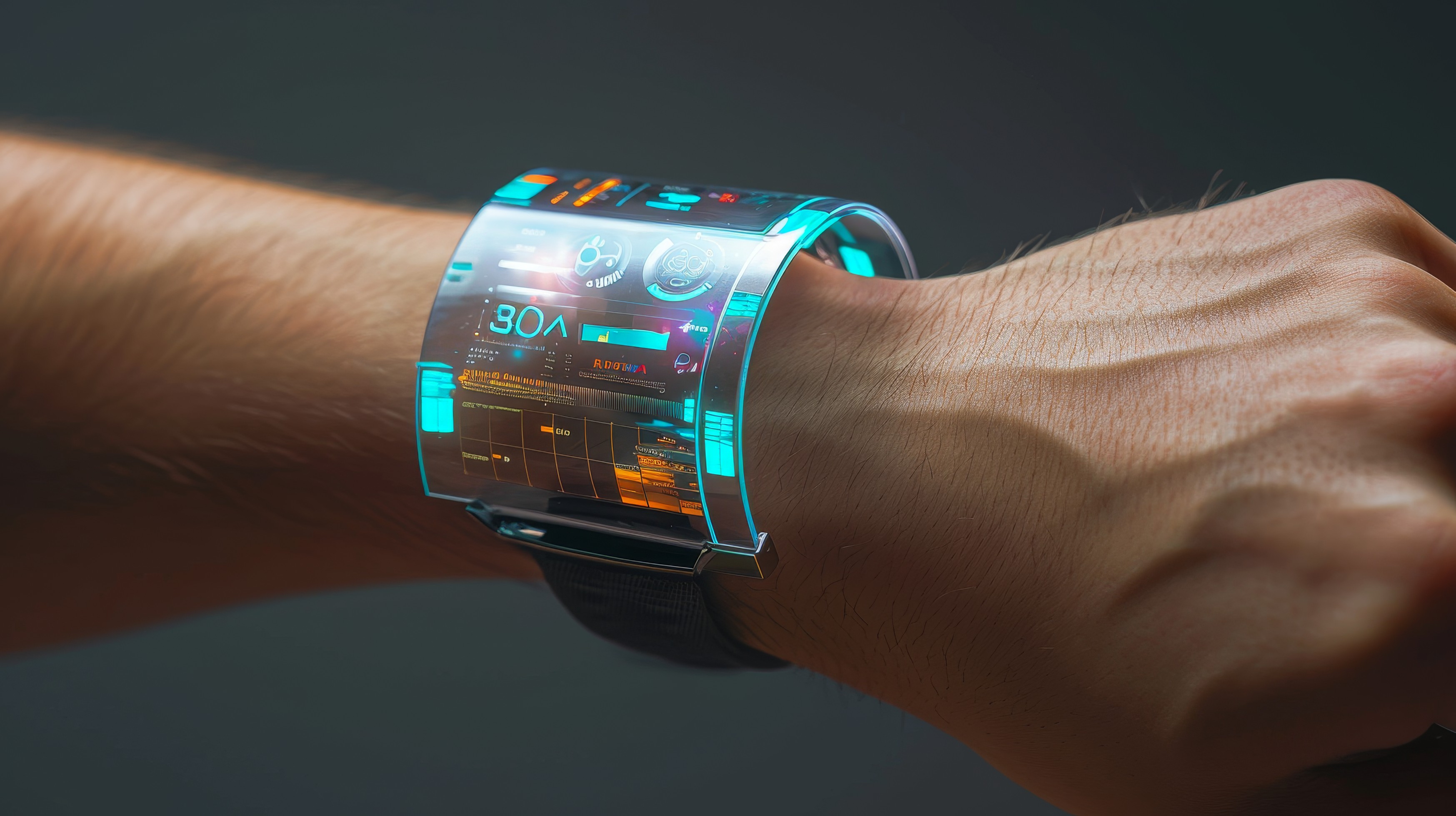Wearable Technology: Empowering Patients and Providers with Real-Time Health Data

In the heart of bustling New York City, Emma, a 38-year-old marketing executive, was always on the go. With a demanding job and a busy home life, her health often took a back seat. That was until she began using a wearable health device that tracked her daily activity, heart rate, and sleep patterns. One evening, after a particularly long day, her wearable device detected an unusual spike in her heart rate. It immediately flagged the irregularity, and Emma's healthcare provider received the data in real-time.
Within hours, Emma was on a video call with her doctor, who identified early signs of a heart condition. Thanks to the insights provided by the wearable device, Emma received timely intervention, avoiding a potentially serious medical event.
Wearable technology is reshaping healthcare by providing real-time data that empowers both patients and healthcare providers. From tracking vital signs to monitoring chronic conditions, wearables are bridging the gap between patients and their healthcare teams. What’s more, the data generated by these devices is contributing to more personalized, proactive care.
But wearables are only part of the story. Behind the scenes, platforms like AiDOOS are helping healthcare organizations integrate wearable technology with existing systems and processes, enabling seamless data flow, ensuring device compatibility, and driving faster implementation of remote monitoring solutions.
Wearable health technology has grown exponentially over the past decade. What started with simple step counters has evolved into a sophisticated ecosystem of devices that can monitor everything from heart rates and blood oxygen levels to glucose levels and sleep patterns. These devices are worn on the wrist, embedded in clothing, or even implanted in the body, continuously collecting data and sending it to healthcare providers.
Fitbit, Apple Watch, and Garmin are just a few of the consumer-facing brands leading the charge in wearable tech. These devices track health metrics and seamlessly sync with mobile apps and health management platforms.
Wearable ECG monitors, continuous glucose monitors (CGMs), and blood pressure monitors are advancing beyond consumer-grade wearables, allowing healthcare professionals to closely monitor patients with chronic conditions.
These devices enable patients to take control of their health, making informed decisions about their lifestyle and medical care. But it’s not just patients who benefit - healthcare providers gain access to a wealth of data that helps them make faster, more informed decisions.
Wearable devices offer patients the ability to monitor their own health in real time. This can be especially valuable for patients with chronic conditions who require continuous monitoring. For instance:
Diabetes patients use CGMs to monitor their glucose levels around the clock, providing real-time feedback on how their diet, exercise, and medications are affecting their blood sugar levels.
Cardiac patients wear heart monitors that detect irregular heart rhythms, allowing for early detection of potential issues and swift medical intervention.
The ability to track personal health metrics gives patients a sense of control, helping them make lifestyle changes, adjust medication, or seek medical attention before conditions worsen. Wearables empower individuals to be proactive, rather than reactive, about their health.
On the provider side, wearable technology enables continuous, real-time patient monitoring, transforming the way healthcare is delivered:
Real-time Data for Better Decision Making: Wearables generate vast amounts of data that provide healthcare providers with critical insights into a patient’s health. Instead of waiting for a quarterly check-up, doctors can monitor a patient's vitals daily or even hourly, spotting potential issues before they escalate.
Personalized Care Plans: The data from wearables allow for more personalized treatment plans. Rather than treating patients based on broad guidelines, healthcare providers can tailor treatments to an individual's unique health data. For example, an asthmatic patient’s wearable can track air quality and respiratory patterns, helping their doctor fine-tune their treatment regimen.
Improving Chronic Disease Management: For patients with chronic illnesses such as diabetes, heart disease, or COPD, wearables provide a lifeline. Providers can adjust treatments in real-time based on fluctuations in the patient’s health, significantly improving outcomes and reducing hospital admissions.
While the benefits are clear, integrating wearable technology into the broader healthcare system is not without challenges:
Data Overload: Wearables generate massive amounts of data, and sorting through this information to find meaningful insights can be overwhelming for healthcare providers.
Interoperability Issues: Wearable devices often don’t communicate seamlessly with existing healthcare systems. Without proper integration, the data collected by these devices can become fragmented, limiting its usefulness.
Data Security: With the increasing use of wearables comes the challenge of ensuring that sensitive health data is secure. Patient privacy must be a top priority, with systems in place to prevent data breaches and misuse.
Enter AiDOOS, a platform designed to bridge the gap between healthcare providers, wearable technology, and the data they generate. AiDOOS offers a unique solution to integrate wearable data into healthcare systems smoothly, ensuring that both patients and providers can fully leverage the benefits of real-time health monitoring.
Seamless Integration: AiDOOS specializes in enabling healthcare organizations to integrate wearables with their existing systems. Whether it's syncing data with EHR platforms or connecting wearable data with AI-driven analytics tools, AiDOOS ensures smooth communication across all channels.
Custom Solutions for Data Management: AiDOOS provides tailored solutions that help healthcare providers manage the vast amounts of data generated by wearable devices. By leveraging AI and machine learning, AiDOOS helps filter and analyze data, providing meaningful insights without overwhelming healthcare staff.
Enhanced Data Security: AiDOOS ensures that wearable data is securely transmitted, stored, and accessed, meeting all regulatory requirements, including HIPAA and GDPR. This gives both patients and healthcare providers peace of mind that sensitive health information is protected.
On-Demand Talent for Rapid Implementation: With AiDOOS's Project as a Service model, healthcare providers can access on-demand talent to develop, deploy, and manage wearable integration projects. This means healthcare systems can scale up their wearable solutions quickly, without the need for lengthy hiring processes or resource bottlenecks.
As wearable technology continues to evolve, the future of healthcare will become even more personalized, proactive, and data-driven. Imagine a world where wearables not only monitor a patient’s health but also predict potential health issues before they occur. With AI-driven insights, healthcare providers will be able to offer preventative care tailored to each individual’s unique health profile, reducing the burden on healthcare systems and improving outcomes for patients across the globe.
The collaboration between wearable technology and platforms like AiDOOS is driving this future. By streamlining the integration of wearables, AiDOOS ensures that healthcare organizations can fully harness the power of real-time health data, delivering better care, improving efficiency, and empowering patients.
Wearable technology is no longer a novelty; it’s a game-changer in healthcare. From empowering patients to take control of their health to providing healthcare providers with real-time data for better decision-making, wearables are reshaping the healthcare landscape. But to fully unlock their potential, seamless integration and management of this technology are crucial.
That’s where AiDOOS comes in. With its expertise in integrating wearables into existing systems, managing data efficiently, and providing on-demand talent for rapid deployment, AiDOOS ensures that healthcare providers can deliver the best possible care in this new era of proactive, data-driven healthcare.
The future of healthcare is here, and it’s wearable.

By redesigning packaging, exploring reusable models, investing in smart tracking, and leveraging the VDC model for execution, beverage manufacturers can reduce their environmental footprint while boosting their brand relevance and operational resilience.

Even the most capable in-house IT teams often fall short when it comes to minimizing downtime. While Managed Services solve much of the downtime problem, the VDC model supercharges it with flexibility, scalability, and domain-specific expertise.